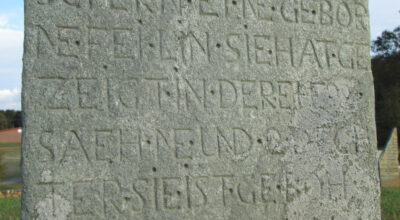Reformation 500 panel at Hood Seminary on Wednesday
Published 12:00 am Saturday, October 21, 2017
Hood Theological Seminary will host a panel discussion on the significance of the 500th anniversary of the Protestant Reformation.
The public is invited to hear the discussion from 11 a.m. to 1 p.m. Wednesday in Room 315 on the seminary campus at 1810 Lutheran Synod Drive.
The Rev. Sharon Grant, who will convene the panel, said, “The panel discussion is convened for active pastors of Christ’s church to discuss significant successes and failures during the last 500 years, reflect on how their denomination has been shaped by the Reformation, and describe how their church has historically contributed to the reform of church and society.”
Grant said further inquiry by the panel will explore ways the church might practice reform in the present age. She said the discussion aims to consider what reforms are necessary in the future to achieve unity in the church.
Grant is assistant professor of the history of Christianity at Hood.
Ashley Dreff, director of United Methodist studies and student recruitment, will be the moderator. Guest panelists are the Rev. John Eckert of Sacred Heart Catholic Church; the Rev. Rhodes Woolly of St. John Lutheran Church; the Rev. Robert Black of St. Luke Episcopal Church; and the Rev. Byron Grayson of St. Paul African Methodist Episcopal Church in Lenoir.
The beginning of the Protestant Reformation is typically attributed to Martin Luther’s publication of the 95 Theses that he nailed on the door of the chapel at the University of Wittenberg on Oct. 31, 1517. As a biblical scholar, Luther’s action sought a theological debate to challenge the Roman Catholic Church’s practice of selling indulgences to forgive sin.
When Luther refused to recant from his position, the Catholic Church excommunicated him and the Protestant church emerged.
This split of the Western church led to years of societal chaos, destruction of property, bloody wars and violent skirmishes that claimed the lives of millions of people throughout Europe and the British Isles.
The founding fathers of the United States understood the importance of religious freedom because of the cataclysmic tragedy they experienced and the trauma the survivors of the Reformation brought with them as they escaped persecution for their religious beliefs.
For more information, email questions to sgrant@hoodseminary.edu.


